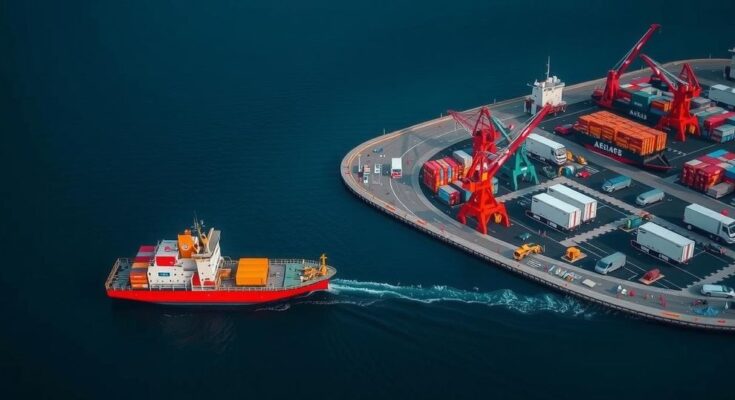Amnesty International reports that UAE-manufactured armored vehicles are being used by the Rapid Support Forces in Sudan’s civil conflict, potentially violating the UN arms embargo. The involvement of French defense systems in these vehicles raises questions about international compliance. Despite the UAE’s denials of arms supplies, over 20,000 deaths and millions displaced highlight the humanitarian crisis exacerbated by ongoing violence.
The United Nations arms embargo against Sudan appears to have been breached following the revelation by Amnesty International that armored vehicles manufactured in the United Arab Emirates are being utilized in the ongoing civil conflict in Sudan. The rights organization reported the presence of UAE-made armored personnel carriers, seen primarily in the hands of the paramilitary Rapid Support Forces, in regions including Darfur. This situation poses serious concerns regarding compliance with international arms regulations. The civil war in Sudan, which began in April 2023, has involved escalating violence between the Rapid Support Forces and the Sudanese army, resulting in significant human rights violations. Over 20,000 fatalities have been reported, with millions displaced, highlighting the dire humanitarian situation. Amnesty’s investigation confirmed the active deployment of Nimr Ajban armored personnel carriers equipped with French defense systems, raising alarm over the legalities surrounding arms transfers to parties engaged in conflict. Agnès Callamard, Secretary General of Amnesty International, emphasized the involvement of weaponry manufactured in France in an active combat scenario. Notably, “the Galix System is being deployed by the RSF in this conflict, and any use in Darfur would be a clear breach of the U.N. arms embargo.” This statement underscores the implications for manufacturers and suppliers concerning their products’ deployment in such conflicts. In response, Lacroix, the manufacturer of the Galix systems, noted that their products are intended solely for smoke-screening purposes for the Emirati Armed Forces. The United Arab Emirates has firmly denied allegations of supplying arms to the Rapid Support Forces or any conflicting parties. A spokesperson for the UAE asserted that the country is subject to a disinformation campaign aiming to distort its foreign policy and humanitarian efforts, reiterating that they have communicated to relevant international authorities their stance on arms support in Sudan.
The civil unrest in Sudan has escalated following tensions between the Sudanese army and the paramilitary Rapid Support Forces, resulting in a humanitarian crisis marked by widespread violence and displacement. The United Nations has imposed an arms embargo to prevent further exacerbation of the conflict, aiming to limit the flow of weapons and military equipment to the region. However, reports indicating the use of UAE-made military vehicles in combat have raised critical questions about compliance with this international mandate. The involvement of international defense manufacturers in supplying equipment that may end up in conflict zones has drawn scrutiny from human rights organizations, emphasizing the need for accountability in arms dealings.
Amnesty International’s report detailing the use of armored vehicles from the UAE by the Rapid Support Forces highlights significant concerns regarding compliance with the UN arms embargo on Sudan. The implications of such findings suggest potential violations of international law and a need for strengthened oversight on arms transfers to conflict zones. The UAE’s vigorous defense against accusations of supplying arms further complicates the narrative surrounding its role in the Sudanese civil war, pointing to ongoing international diplomatic and humanitarian challenges.
Original Source: www.arkansasonline.com




